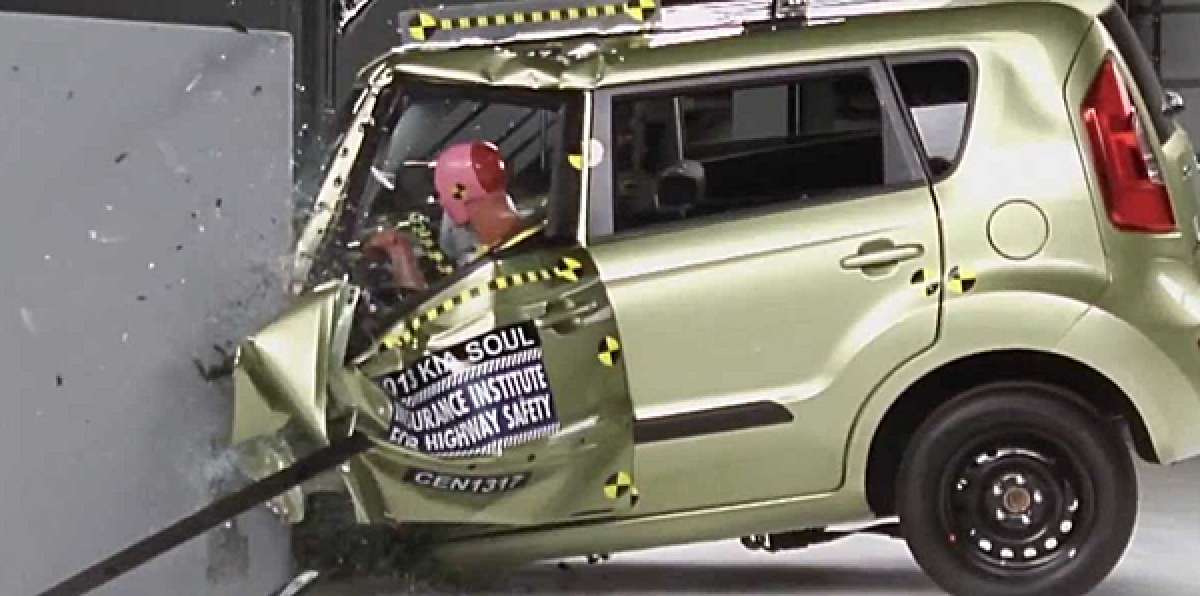According to Kia, the all-new 2014 Soul scores five stars for frontal and side impact tests and earns a 5-star overall rating. (The results are not posted yet on NHTSA's safercar.gov website so we'll just have to take Kia's word for it.) It joins the 2014 Kia Optima and Kia Optima Hybrid as the only other Kias in the 2014 model year with 5-star ratings.
NHTSA says on its website, "The National Highway Traffic Safety Administration’s New Car Assessment Program (NCAP) created the 5-Star Safety Ratings Program to provide consumers with information about the crash protection and rollover safety of new vehicles beyond what is required by Federal law. One star is the lowest rating; five stars is the highest. More stars equal safer cars."
As previously reported here on TorqueNews.com, Kia is starting to face a bit of a sales challenge. The article said, "[E]verything appears to be good, but there could be trouble ahead for the Korean manufacturer because sales overall are lagging behind 2012 numbers at this point. The problem is almost all of the models except two are flat or down from last year's sales numbers. Without the refreshed 2014 Kia Optima and the all-new 2014 Kia Soul, the brand is in trouble."
The article also pointed out, "Are things going to get better for 2014? They should seem to because the new Kia K900 has been introduced. But, even with good sales, don't expect it to top out at more than 2000 vehicles a year because it faces stiff competition from its sister company Hyundai and its Equus, which has sold 3226 vehicles this year.
"Kia is poised to stumble in 2014 with the introduction of a Kia electric vehicle. It's not even on the market yet and doubts have been raised about its range. Also, Kia is late to the game with an electric vehicle and Hyundai is largely ignoring that arena to focus on a hydrogen fuel cell vehicle. Kia is going to have to pull off a moderate miracle to appeal beyond just typical electric vehicle buyers to gain traction and increased sales."
So, how can Kia turn things around? Maybe it's time to become the Volvo of Korea, which would be ironic seeing Volvo is now technically the Volvo of India. It's not such a wild idea when one considers its sister company – Hyundai – is doing something similar with the 2015 Hyundai Genesis.
In yet another article posted here at TorqueNews.com, we observed that Hyundai is marketing the Genesis at the Super Bowl as a guardian angel vehicle that overcomes bad parenting to save a teenager and his dad during what appears to be a driving lesson.
Of course, in the same article, we also noted "safety continues to be a low point when it comes to vehicle consideration. As veteran automotive journalist Jim Montavalli observed in a post at CarTalk.com, 'Americans do want it all, but they’ll settle for something affordable with good fuel economy, styling and image, in that order. Automakers: No bland meat-and-potatoes sedans—the public wants pizzazz. And electrics with high voltage.'"
So there is a tentative solution for Kia. Start with the 2014 Kia Soul and its five-star safety rating. Focus on how well equipped it is when it comes to safety equipment. An impressive 66 percent of the all-new Soul’s chassis utilizes either Ultra High Strength Steel (35 percent) or High Strength Steel (31 percent).
The 2014 model offers consumers protection in the form of standard safety features and technology, including six standard airbags (dual advanced front and front seat-mounted side air bags, full-length side curtain air bags) and a four-channel, four-sensor Antilock Brake System (ABS) with Electronic Brake Force Distribution (EBD), which takes into account vehicle load and weight distribution and applies the appropriate stopping force to improve control and stability. Additional standard safety equipment for Soul includes Hill-start Assist Control (HAC), Tire Pressure Monitoring System (TPMS), Electronic Stability Control (ESC) and a Traction Control System (TCS).
In conjunction with the ABS, the TCS uses brake and engine torque intervention to enhance traction during launch and acceleration on slippery road surfaces. If the ABS system detects wheel slip, it signals the engine control unit to adjust torque output accordingly. TCS also senses when one or more wheels spin faster than the vehicle's speed, and if necessary, applies the brakes accordingly. Working together, the two systems limit wheel spin and help the driver maintain control.
Working with the standard ABS with EBD and TCS, the ESC system can apply individual brakes selectively to help control oversteer and understeer as needed to help the driver maintain control on slippery surfaces or during certain emergency maneuvers.
Photo: 2013 Kia Soul undergoing IIHS crash testing.





